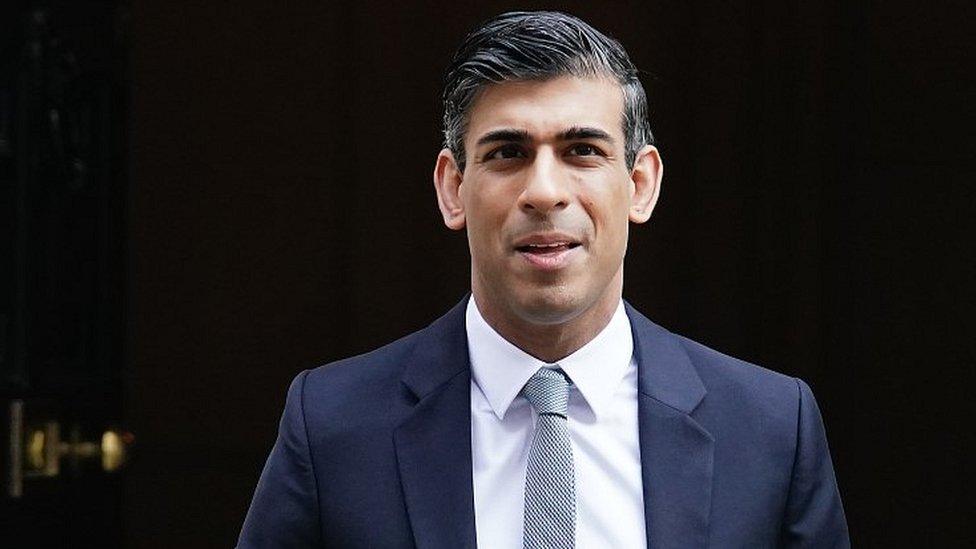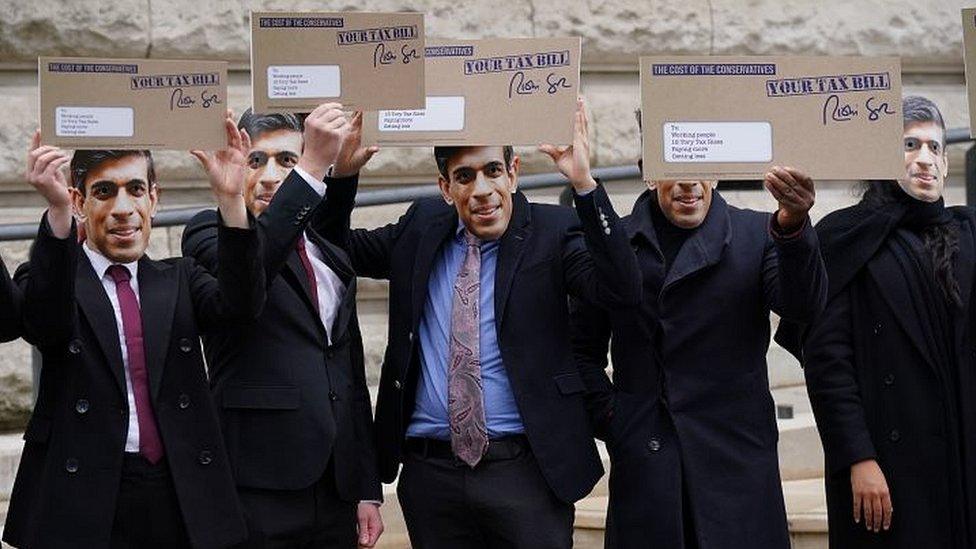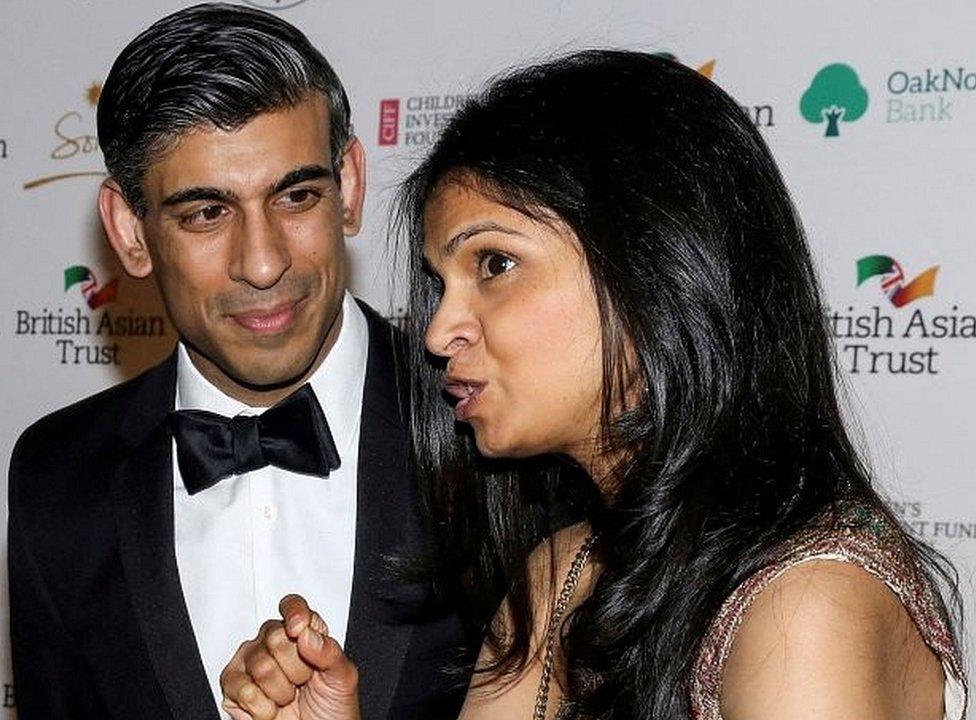Whatever happened to Rishi Sunak's political honeymoon?
- Published

When Rishi Sunak pledged to do "whatever it takes" to help people through the pandemic in the spring of 2020 - and unveiled support worth £350bn - his personal poll ratings were stratospheric.
His net favourability was around +30 by some measures. It is now, according to pollsters Ipsos, -18.
The chancellor's confident, inclusive tone, redolent of Tony Blair in the 1990s, has sounded a little more shrill lately.
Usually supportive newspapers panned his Spring Statement, with some Conservative critics saying he had not grasped the scale of the cost-of-living crisis.
Now his wife's tax affairs - and his own political judgment - have been placed in the spotlight.
You might not blame him for uttering the words of Kenneth Williams's Julius Caesar in the film Carry on Cleo: "Infamy. Infamy. They've all got it in for me."
Indeed, he accused opponents of smearing his wife to get at him, and seems to believe he has endured an attempted character assassination.
When Partygate dominated the headlines, he was seen as not just a potential replacement for Boris Johnson as prime minister, but the likely favourite.
It was always inevitable that his popularity would take a bit of a pasting when he started raising, rather than spending, cash, as pandemic restrictions receded.
But while the official line is that Labour dirty tricks are to blame for his current woes, his wife has broken no tax laws.

Rishi Sunak has become the focus of much discontent over the rise in the cost of living
Privately some of Mr Sunak's allies blame supporters of his next-door neighbour in Downing Street, who may himself face a tricky time when the police conclude their investigation into parties that happened on government premises during lockdown.
No 10 has dismissed these allegations as "baseless", so what do some of Mr Sunak's Conservative colleagues think of his prospects now?
One very senior figure not generally seen as unsympathetic to the chancellor wondered: "Where is his political brain?"
And while one former cabinet minister said he had "mild sympathy" for Mr Sunak, as he had been subjected to a "nasty ad hominem" attack, he added that every leadership candidate, declared or otherwise, should expect this.
He was naive if he thought families were "off-limits for attacks".
His view was that the tax row could be as toxic for the chancellor as partygate had been for Mr Johnson.
It was all about a disconnect with ordinary voters. They could not hold a children's birthday party during lockdown, but boozy get-togethers were apparently held at the heart of government.

Rishi Sunak has accused political rivals of smearing his wife, Akshata Murty
Similarly, their taxes were being put up by the chancellor, while his wife did not pay UK tax on some of her own earnings
And this question of judgement was a recurrent theme among some of his colleagues.
Why did the chancellor tell officials of his wife's tax status if he did not think it was a potentially tricky issue? Should he not have realised that not everything which is legal is politically sensible?
Who had he allowed himself to fall in to the "one-rule-for-us, one-rule-for-everyone-else" trap?
Some felt that, once Mr Sunak was associated with this impression, it would be difficult to turn it around.
The chancellor was seen by colleagues as having a carefully curated image, But the feeling was that his extended honeymoon with voters was turning in to a far more difficult relationship.